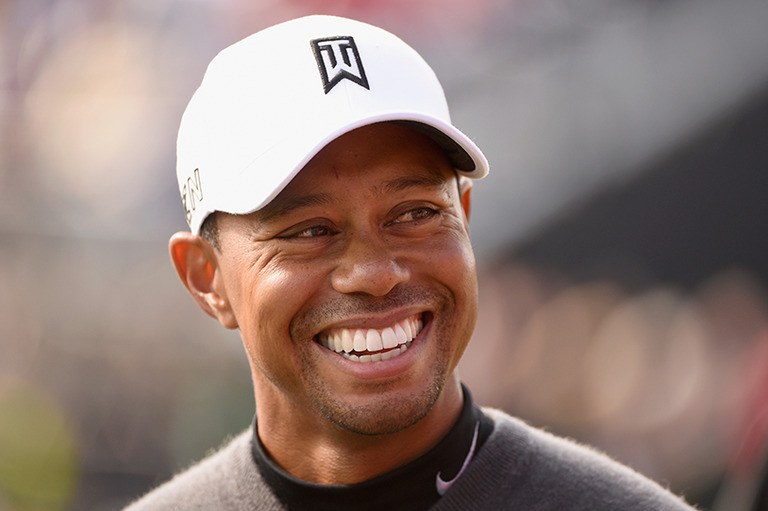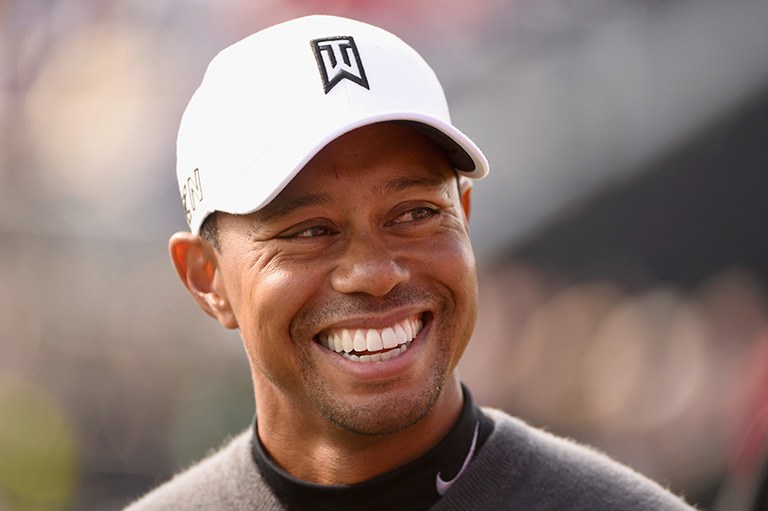
I've been looking for Tiger Woods' "enablers" since that latest brush with roadside gravel and pathos. I was about ready to declare them unfindable when all of a sudden I turned a corner, and there they were.
It's I. It's we.
By the way, it's you in particular. We're all enablers. Sixty-three million Americans enabled Donald Trump, and now he is alone and can't be told anything. A few more million Americans (but 10 fewer states) enabled Hillary Clinton, who along with her party forgot the words of John F. Kennedy ("the torch has been passed to a new generation … ") and instead passed it back to an old generation because that's where the money, not to mention the ambition, was.
In my time, I was a great enabler of O.J. Simpson, and not only because, in the sportswriting dodge, we forgive a lot in a guy who'll answer our calls. I liked him from the day in a Cincinnati hotel room when a bunch of us were measuring Simpson against the retired Jim Brown, and O.J. turned to me and asked, "Who do you say was the best? Me or Brown?"
"Gale Sayers," I replied.
He laughed. Brown wouldn't have laughed. Simpson won me with a laugh.
Brown was the best, incidentally, almost as good at shrugging off tacklers as he was at shrugging off allegations of violence against women.
I knew both Woody Hayes at Ohio State and Bobby Knight at Indiana. (I played golf with Knight.) And I knew how it was going to end for both of them.
I think everybody did.
They got the big things right and the little things wrong. Woody beat up sideline yard markers, practicing for beating up a Clemson middle guard named Charlie Bauman, who had just intercepted a pass from Buckeyes quarterback Art Schlichter, the most enabled miscreant in the annals of the Big Ten. That's how Woody went out.
Knight, the all-time undisciplined disciplinarian, ordering haircuts while throwing furniture, also left on a banana peel. He sure was fun to enable.
So was Pete Rose. Somehow, Pete skipped his true generation. Bootlegging memories from the old Yankee Hall of Famer Waite Hoyt, Rose spoke of Babe Ruth as if Pete was standing there when the Babe lifted his considerable self out of the bathtub and pulled on a white terry-cloth robe ("with the red BR on the left breast pocket," Pete said, tracing Babe's monogram with a finger).
Sitting in the dugout a couple of hours before a game, Rose watched knuckleball pitcher Phil Niekro jogging in the outfield, and said,
"You know, I've got 71 hits off Phil Niekro. I've got 41 hits off Joe Niekro. Damn, I wish Mrs. Niekro had had another son!" Instead of being saddened by a man so single-faceted, we were charmed.
Muhammad Ali, touchstone for racism, the Vietnam War and the assassination decade of the '60s, never said a racist thing—as far as I can tell—after Elijah Muhammad of the Nation of Islam died in 1975. And the racist things Ali said before that, he didn't mean. Anyone who ever got close enough to look him in the eye saw only love there. That's why we enabled the hell out of him.
"Black men scare white men more than black men scare black men," he told me late one night by the Congo River in Zaire. That had nothing to do with race and everything to do with me picking George Foreman in one. "You always wrong," Ali said years later with dancing eyes. Yep, pretty much.
"He was a great kid," Ernie Els said of Tiger in 2009, shortly after the Escalade hit the fire hydrant. "I mean, a really great kid. You knew him."
Well, he was never a great kid. But he was a great player.
"A tough little guy, but a shy, nice kid," Els continued. "You could see he had a lot of chip on him because of all his father's influence. Earl was putting it on him to look the guys in the eye, and obviously he did an unbelievable job."
I have an old tape of Earl Woods, the enabler-in-chief, who made even fabulist agent Mark Steinberg seem almost credible, saying in that mellifluous voice of his, "Tiger never lies. He told a lie once when he was a child, and it made him physically sick."
There's a pause on the recording, after which you can hear me across the room say, "Earl, he's the biggest [bleeping] liar on the PGA Tour."
Earl laughed.
Something Ernie said seven years ago, unlike almost everything that has been said since, has stayed true.
"What'll he do in the Masters?" I asked.
"Contend," he said.
"Really?"
"He'll be fifth."
(He was fourth.)
"But win it?" Ernie said.
"No chance."
"Ernie, if he can finish fifth, he can win it."
"No, there's a guilt. There's a conscience. You can't play your best without self-respect. I don't know what's going to happen from here on out, but I know one thing: It's never going to be the same."
It's never going to be the same.
When Tiger was 4, Earl and Kultida took him to Kansas to visit Earl's family. The oldest sister, Hattie Belle, who raised the siblings after their parents died, stood in the yard tossing a football to Tiger. "I'll watch him," she told Earl and Tida as they headed off to the store.
But the moment they were out of sight, she dropped the football and picked up Tiger. "They don't touch him enough," she told her sister Mae. "Look at those sad eyes."
That's what I thought when I saw the mug shot.
Look at those sad eyes.
RELATED: The sad story of Tiger Woods grows even sadder
A timeline of Tiger Woods' most recent troubles
Tiger Woods DUI Arrest: What lawyers say will happen in court

